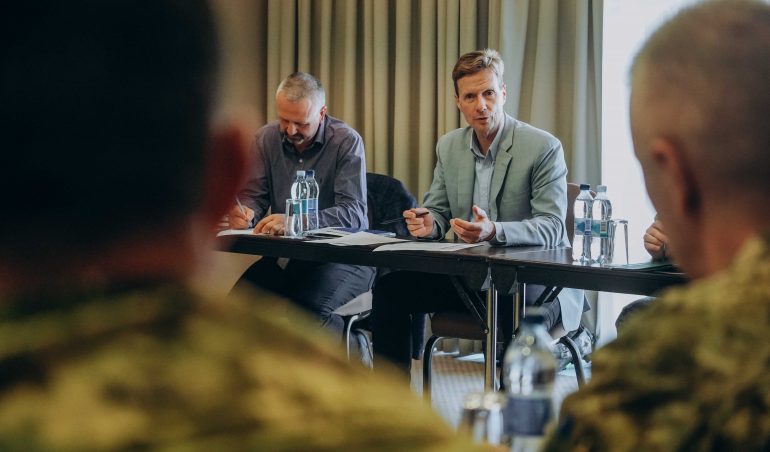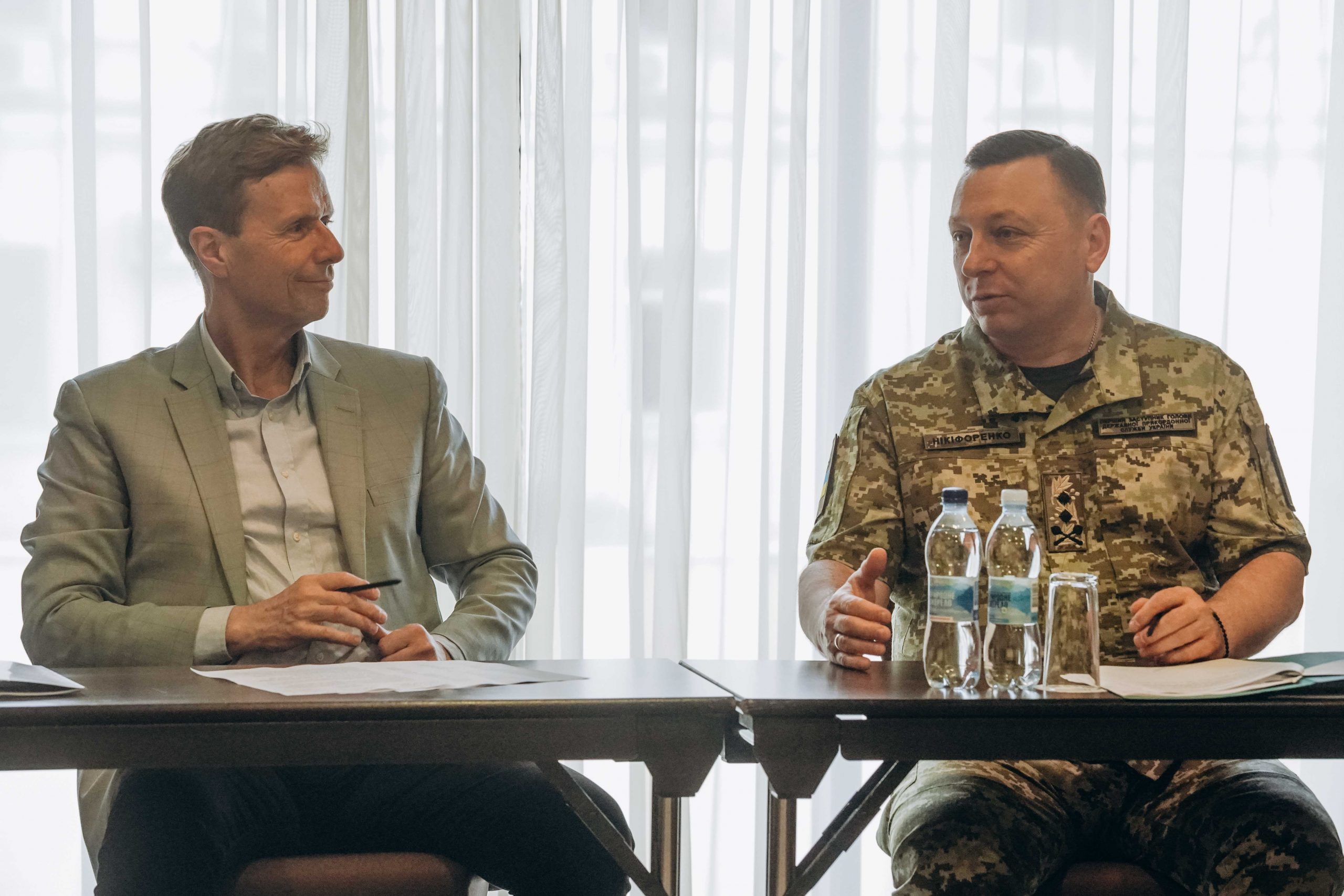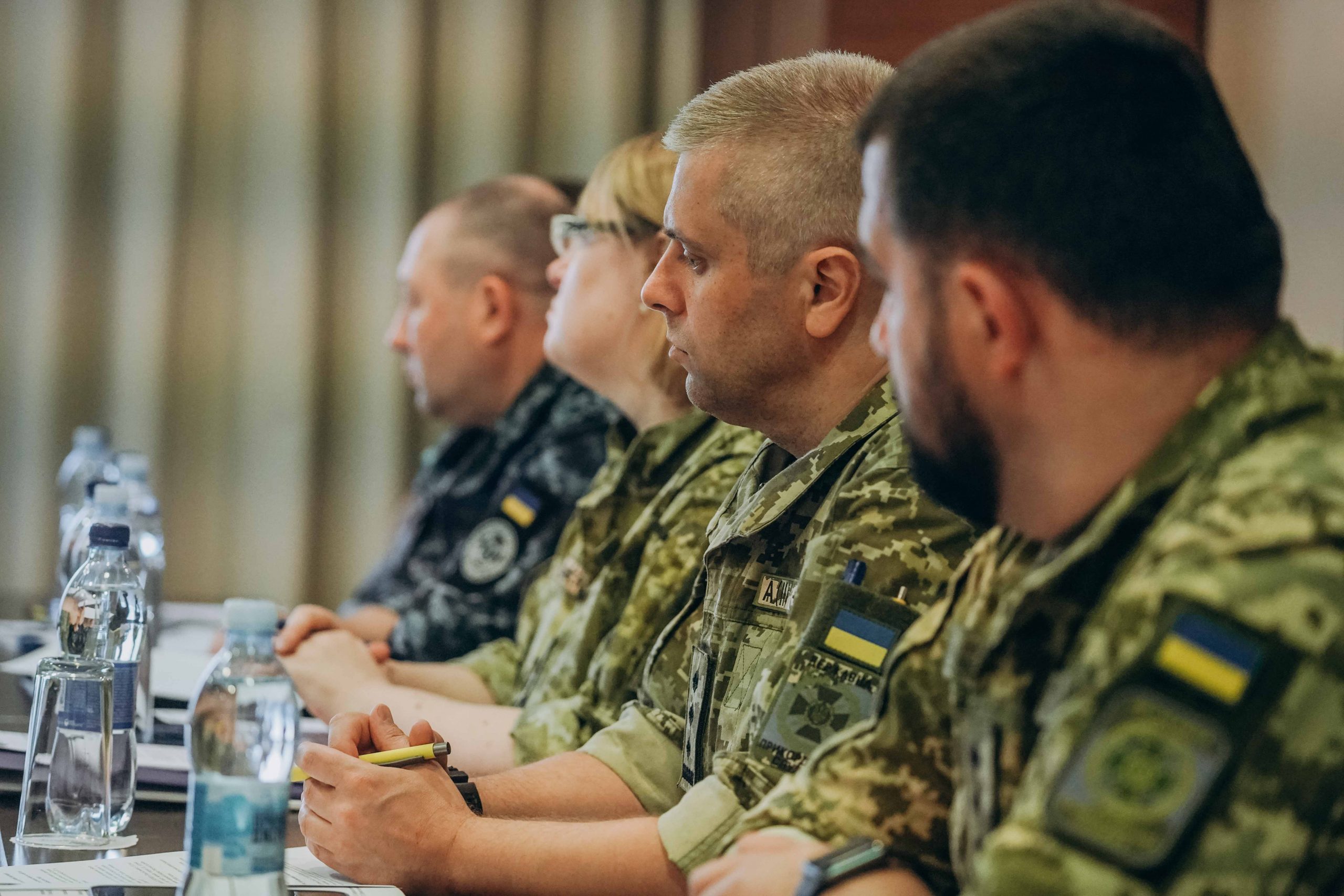Black Sea Security Drives Maritime Reform in Ukraine
July 07, 2025
As the Black Sea gains new importance on Europe’s security map, Ukraine is stepping up efforts to strengthen its maritime governance. Recently, the European Union Advisory Mission (EUAM) Ukraine organised a two-day workshop in Kyiv, bringing together national and international partners to discuss what a modern Coast Guard should look like, and how Ukraine can align its approach with EU standards.
“The Black Sea is no longer just a regional concern; it is becoming the future external maritime border of the European Union,” said Rolf Holmboe, EUAM’s Head of Mission, as he opened the workshop. “Ukraine’s maritime domain is gaining renewed geopolitical and operational importance – not only because of the war with the aggressor state Russia and the protection of Ukrainian national security and economy, but for the collective security and stability of the wider European Union space.”
The war has reshaped not only Ukraine’s security needs but also expectations for its maritime institutions. Ukraine’s Coast Guard is now expected to do much more than monitor borders. Its tasks include search and rescue, pollution response, protecting critical infrastructure, enforcing maritime law, and supporting environmental resilience – all while operating in a high-risk and fast-changing environment.
That’s where this workshop comes in.
The event had two main goals: first, to introduce EU best practices for Coast Guard functions – practices that Ukraine, as a future EU Member State, will be expected to adopt; and second, to tailor those standards to Ukraine’s specific context by assessing what is already in place, where the gaps are, and how agencies can better work together to address them.

“The full-scale war has put many reforms on hold. But we did not give up. And I am grateful to each of you who has helped us continue the work on Coast Guard reform – despite the challenges, despite the uncertainty,” underlined Major General Volodymyr Nikiforenko, First Deputy Head of the State Border Guard Service of Ukraine. “Our goal is the full integration of Ukraine’s maritime practice into European standards. We aim not only to reclaim our territories but also to regain control over the Black and Azov Seas. We believe Ukraine will have a modern fleet, including several corvettes, to represent our state in the Black Sea area.”
Participants also discussed EUAM’s recent recommendations, including adopting a functional approach to maritime governance inspired by the European Coast Guard Functions Forum. A key proposal was the creation of a Joint Maritime Operation and Coordination Centre – a hub to bring together the Maritime Guard, Navy, Ministry of Internal Affairs, Ministry of Infrastructure, and civilian actors such as the Ukrainian Sea Ports Authority.

“In a region marked by hybrid threats, environmental risks, and ongoing war, strengthening Ukraine’s ability to perform these functions in line with EU standards is not only about compliance. It’s about resilience, interoperability, and long-term strategic relevance,” added Rolf Holmboe.
EUAM reaffirmed its long-term commitment to supporting Ukraine through strategic advice, capacity building, and international cooperation.
The Mission also welcomed Swedish experts Mr Kenneth Neijnes and Mr Erik Froste from the Civil Contingencies Agency (MSB), who shared insights into European approaches to Coast Guard functions. Their contributions underscored the importance of the topic – and the strong will to move forward.


